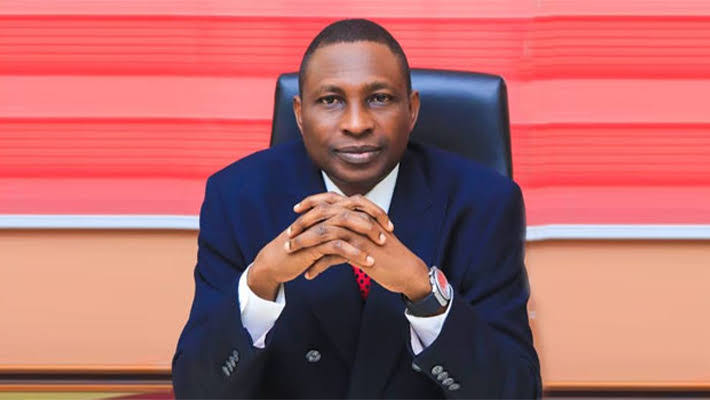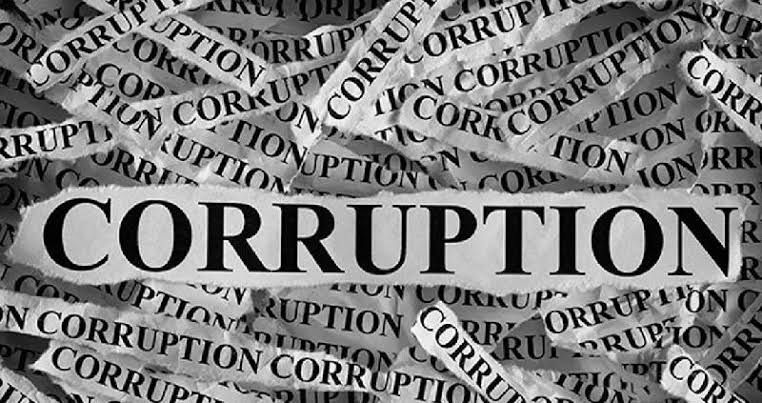The EFCC chairman expressed deep concern about how Nigeria is managing to survive despite the rampant corruption in the country.
By Abayomi Odunowo.
Corruption has long been a pervasive issue in Nigeria, with corrupt practices deeply entrenched in various sectors of the country. The EFCC chairman’s remarks on the scale of stealing by corrupt elements in Nigeria reflects the seriousness of the corruption problem in the country. Indeed, the Chairman of the Economic and Financial Crimes Commission, Ola Olukoyede, expressed disbelief at the staggering amounts of money stolen, questioning how the country is still surviving amidst such rampant corruption.
The impact of corruption on Nigeria’s development and progress cannot be overstated. Corruption hampers economic growth, undermines institutions, distorts the distribution of resources, and erodes public trust in the government. It stifles innovation, discourages investment, and perpetuates poverty and inequality. The misappropriation of public funds by corrupt individuals not only deprives the government of much-needed resources for development projects but also perpetuates a cycle of poverty and underdevelopment that affects the entire population.
The EFCC chairman’s remarks point to the brazenness and audacity of corrupt individuals in Nigeria who engage in large-scale embezzlement and fraud. The movement of unspent budget allocations to private accounts in commercial banks before midnight at the end of a budget cycle is a clear example of the sophisticated methods used by corrupt individuals to siphon public funds for personal gain. This kind of corruption not only robs the country of valuable resources but also undermines the credibility and integrity of government institutions.
Corruption is a pervasive issue that plagues many countries around the world, siphoning valuable resources and undermining the integrity of institutions. In an effort to combat this problem, it is imperative to implement strict sanctions that deter individuals and entities from engaging in corrupt practices.
One proposed measure is to impose heavy penalties on banks that knowingly transfer unspent budgets from corrupt transactions. These banks should face sanctions three times the amount of the unspent budget, in addition to the full amount received, to discourage them from aiding in the laundering of proceeds of corruption. By holding financial institutions accountable for their role in facilitating corrupt activities, we can create a stronger deterrent against corruption.
Furthermore, it is essential to address the issue of familial ties to corrupt individuals. Any individual caught engaging in corruption should not only face consequences themselves, but their entire family line should also be blacklisted from holding positions of authority in the country. This measure would serve as a powerful deterrent, as it holds not only the individual accountable for their actions, but also those who may benefit from the ill-gotten gains. By implementing these strict sanctions, we can send a strong message that corruption will not be tolerated and ensure that the proceeds of corruption are returned to the people.
The widespread nature of corruption in Nigeria is a serious challenge that requires a concerted effort to address. The EFCC, as the anti-corruption agency mandated to investigate and prosecute financial crimes, plays a crucial role in combating corruption in the country. However, the EFCC cannot tackle corruption alone; it requires the support and cooperation of other government agencies, civil society organizations, the private sector, and the general public to address the root causes of corruption and hold accountable those who engage in corrupt practices.
One of the key factors fueling corruption in Nigeria is the lack of transparency and accountability in government operations. Weak governance structures, inadequate oversight mechanisms, and a culture of impunity contribute to the prevalence of corruption in the country. Addressing these systemic issues requires reforms and measures to promote transparency, accountability, and good governance in both the public and private sectors.
Corruption thrives in an environment where there is impunity for wrongdoing and weak institutional capacity to enforce the rule of law. Strengthening the capacity of law enforcement agencies, enhancing the independence of the judiciary, and ensuring swift and effective prosecution of corrupt individuals are essential steps in the fight against corruption. Political will, leadership commitment, and public support are also critical in addressing corruption and building a culture of integrity and accountability in Nigeria.
In addition to law enforcement and institutional reforms, addressing corruption requires a multi-faceted approach that includes promoting ethical conduct, fostering transparency, encouraging citizen engagement, and creating incentives for honesty and integrity. Moral and ethical values must be instilled in all segments of society, from government officials to private citizens, to combat the corrosive effects of corruption and promote a culture of honesty and accountability.
The EFCC chairman’s remarks on the magnitude of stealing by corrupt elements in Nigeria underscore the urgent need to tackle corruption at all levels and in all sectors of society. The fight against corruption is a collective effort that requires the commitment and cooperation of all stakeholders to create a more transparent, accountable, and ethical society. Only by confronting corruption head-on and holding accountable those who engage in corrupt practices can Nigeria move towards a brighter future for all its citizens.
Follow us on our Whatsapp Channel



